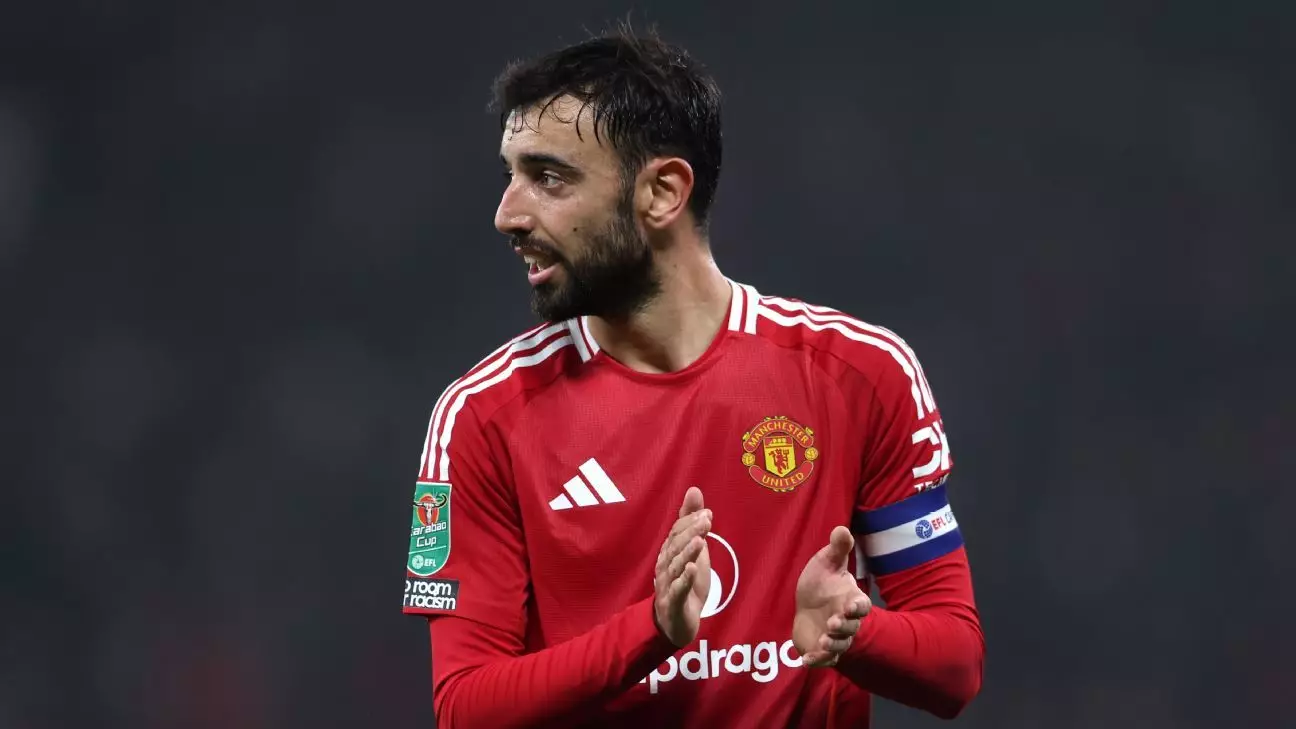Following the recent departure of Erik ten Hag from Manchester United, Bruno Fernandes expressed a heartfelt sense of responsibility and regret. In the wake of a 1-1 draw against Chelsea, the midfielder acknowledged the collective failures that led to Ten Hag’s dismissal, indicating a significant shift in the mentality within the team and the club’s culture. Fernandes articulated a profound sense of accountability, revealing that he personally reached out to Ten Hag to extend his apologies. This interaction invites a deeper analysis of leadership in football, illustrating how player dynamics and managerial stability are inextricably linked to team performance.
Fernandes’s statement, “Whenever you see a manager go, you have to take some of the blame on yourself,” sheds light on a crucial aspect of sports psychology—the acceptance of responsibility is often the catalyst for improvement. By recognizing that the team’s poor performance contributed to Ten Hag’s exit, Fernandes demonstrates maturity and leadership qualities that are vital in a club striving for success. His admission signals a wake-up call not just for the players, but for everyone associated with the club, emphasizing that individual performances are central to collective outcomes.
The responsibility that Fernandes speaks of extends beyond mere words; it represents a cultural shift in Manchester United’s dressing room. Admitting fault is often easier said than done, yet it is essential for growth. The acknowledgment of shared accountability among players underlines a collective endeavor to improve. Fernandes’s perspective reflects a broader ethos in sports—when leadership fails, accountability must shift to those on the pitch.
In the world of football, sacking a manager is frequently the simplest solution to address deeper-seated issues. Fernandes’s reflections can be seen as a clarion call for players to scrutinize their own contributions more rigorously. “It is easier to get rid of a manager than 15 players,” he pointedly observes. This conundrum is a familiar narrative in high-stakes sports environments, where immediate change is often sought, rather than implementing long-term strategies to revitalize performance and cohesion.
The Impact of Caretaker Management
Following Ten Hag’s exit, Ruud van Nistelrooy stepped into the caretaker role amid a tumultuous week filled with emotional highs and lows. His admission that it has been a challenging period for the club highlights the transitional struggles often faced during managerial changes. The players, as Van Nistelrooy noted, have been asked to “look in the mirror,” a metaphor for self-evaluation that suggests a serious introspection process is underway.
As they prepare for upcoming matches, including a crucial Premier League encounter against Leicester, it is evident that the fallout from Ten Hag’s departure continues to reverberate through the squad. Van Nistelrooy’s leadership will be pivotal; he must find a balance between supporting incoming coaching influences while instilling confidence and tactical clarity. The challenge for any caretaker manager is not just to stabilize results but also to strengthen morale among players unsettled by abrupt change.
As Manchester United navigates this period of adjustment, questions linger about the club’s future direction, particularly with Rúben Amorim set to take over. His announced intent to bring his own staff indicates a potential shift similar to that of previous managerial transitions, which often leads to a reorganization of the club’s strategic vision on and off the field.
Van Nistelrooy’s willingness to support Amorim underscores the necessary collaboration required during times of change. His anticipation of working alongside a new manager reveals the fluid dynamics in football management—where integration of new ideas and philosophies can either bridge or widen existing gaps within a team.
Ultimately, the forthcoming matches will not only test the immediate coherence of the squad but also signal how quickly Manchester United can adapt to its new leadership landscape. The players’ accountability, as voiced by Fernandes, will be crucial in shaping the narrative of resilience and recovery at the club, proving that any transition can serve as an opportunity for regeneration, unity, and success in the turbulent realm of elite football.
